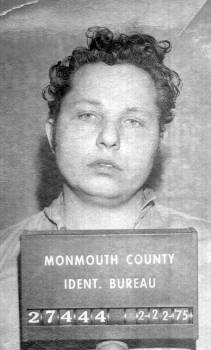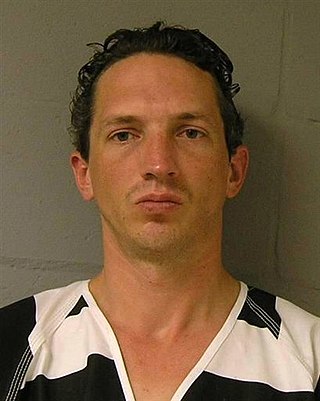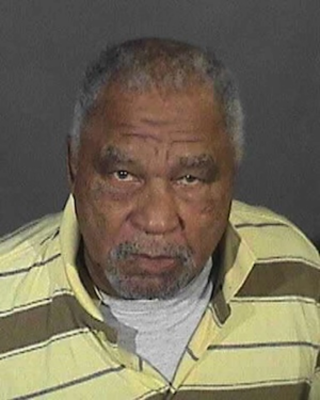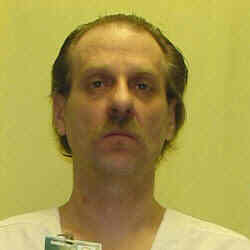
Andrei Romanovich Chikatilo was a Ukrainian-born Soviet serial killer nicknamed the Butcher of Rostov, the Rostov Ripper, and the Red Ripper who sexually assaulted, murdered, and mutilated at least fifty-two women and children between 1978 and 1990 in the Russian SFSR, the Ukrainian SSR, and the Uzbek SSR.

Gary Leon Ridgway is an American serial killer known as the Green River Killer. He was initially convicted of 48 separate murders committed between the early 1980s and late 1990s. As part of his plea bargain, another conviction was added, bringing the total number of convictions to 49, making him the second-most prolific serial killer in United States history according to confirmed murders.

Henry Lee Lucas, also known as The Confession Killer, was an American convicted murderer. Lucas was convicted of murdering his mother in 1960 and two others in 1983. He rose to infamy as a claimed serial killer while incarcerated for these crimes when he falsely confessed to approximately six hundred other murders to Texas Rangers and other law enforcement officials. Many unsolved cases were closed based on the confessions and the murders officially attributed to Lucas. Lucas was convicted of murdering eleven people and condemned to death for a single case with a then-unidentified victim, later identified as Debra Jackson.

Joel David Rifkin is an American serial killer, who was sentenced to 203 years in prison for the murders of nine women between 1989 and 1993, though it is believed he killed as many as 17 people.

Gerald Eugene Stano was an American convicted serial killer. Stano murdered at least 22 young women and girls, confessed to 41 murders, and the police say the number of his victims may be closer to 88.

Christopher Bernard Wilder, also known as the Beauty Queen Killer and the Snapshot Killer, was an Australian-American serial killer who abducted at least twelve young women and girls, killing eight of them during a six-week, cross-country crime spree in the United States in early 1984. Wilder's series of murders began in Florida on February 26, 1984, and continued across the country through Texas, Oklahoma, Colorado, Nevada and California, with attempted abductions in Washington and New York. Wilder victimized attractive young women, most of whom he would entice by promising to take their pictures. After subduing them, he would torture and rape them before shooting, stabbing with a knife, or strangling them to death. Two or more of his victims were electrocuted using a makeshift electrical cord.

Robert Zarinsky was an American serial killer and Neo-Nazi who killed three teenage girls in Monmouth County, New Jersey between 1965 and 1969. Convicted of one of these murders, he was sentenced to life in prison. He was also a suspect in four other murders, including the 1958 murder of a police officer in Rahway, but he was later acquitted for that crime.
The West Mesa Murders are the killings of eleven women whose remains were found buried in 2009 in the desert on the West Mesa of Albuquerque, New Mexico, United States. Several suspects have been named, but none were arrested or charged. While the killings were initially believed to be the work of a serial killer, the involvement of a sex trafficking ring has been suspected.

The Speed Freak Killers is the name given to serial killer duo Loren Herzog and Wesley Shermantine, together initially convicted of four murders — three jointly — and suspected in the deaths of as many as 72 people in and around San Joaquin County, California based on a letter Shermantine wrote to a reporter in 2012. They received the "speed freak" moniker due to their habitual methamphetamine abuse. Herzog committed suicide in 2012. Shermantine remains on death row in San Quentin State Prison, in San Quentin, California.

Israel Keyes was an American serial killer, bank robber, burglar, arsonist, kidnapper, and sex offender. He murdered at least three people, is suspected of murdering between 11 and 20 people, and committed dozens of felonies including armed robbery, arson, rape, and burglary across the United States from July 2001 to February 2012.
Andre Rand is an American convicted child kidnapper, sex offender, and suspected serial killer, currently serving two twenty-five years to life sentences in prison for the abductions of two girls, age 7 and 12. He is eligible for parole in 2037. He is the subject of the 2009 documentary Cropsey which states that he may have been the source of that urban legend.
The Eastbound Strangler is an unidentified serial killer believed to be responsible for the murders of four women near Atlantic City, New Jersey in 2006. A $25,000 reward offered for information has gone unclaimed.

William Devin Howell is an American serial killer who was convicted of murdering seven women in 2003. He is one of the most prolific serial killers in Connecticut history. In November 2017, while already serving a 15-year prison sentence for manslaughter, he was sentenced to six consecutive life sentences, which he is currently serving at Cheshire Correctional Institution.

Samuel Little was an American serial killer who confessed to murdering 93 people, nearly all women, between 1970 and 2005. The Federal Bureau of Investigation (FBI)'s Violent Criminal Apprehension Program (ViCAP) has confirmed Little's involvement in at least 60 of the 93 confessed murders, the largest number of confirmed victims for any serial killer in United States history.
Dr. No is the nickname given to a suspected American serial killer thought to be responsible for the murders of at least nine women and girls in Ohio, between 1981 and 1990. As victims, Dr. No primarily chose prostitutes working in parking lots and truck stops located alongside Interstate 71. There are suspicions that he committed three similar killings in New York, Illinois, and Pennsylvania, between 1986 and 1988.

John Joseph Fautenberry was an American serial killer. A long-haul trucker, Fautenberry befriended and subsequently murdered five people across four states between 1990 and 1991, and after his arrest, confessed to an additional 1984 murder for which another man was convicted. He was sentenced to death for one of his killings, and subsequently executed at the Southern Ohio Correctional Facility in 2009.

Khalil Wheeler-Weaver is an American serial killer and arsonist. Using the social networking site Tagged, Wheeler-Weaver lured several women to secluded locations in Orange, New Jersey, and subsequently strangled them to death throughout late 2016. One of the victim's sister created a fake account and lured Wheeler-Weaver to a meeting before notifying police.

Richard Westall Rogers Jr., known as The Last Call Killer, is an American suspected serial killer. After being acquitted for the murder of a college student in Maine, he moved to New Jersey, where he murdered and dismembered two gay and bisexual men in 1992 and 1993. His modus operandi consisted of luring the men from piano bars in Manhattan, murdering and dismembering them at an unknown location, and dumping their bodies in garbage bags along highways in New Jersey.

Nathaniel Harvey was an American murderer and suspected serial killer who was sentenced to death in New Jersey for the 1985 rape-murder of a woman in Plainsboro. He was one of only eight men on New Jersey's death row when it was abolished in 2007 by then-Governor Jon Corzine. He was re-sentenced to life in prison and died at South Woods State Prison in 2020. A few years after his death, he was linked through DNA evidence to a separate rape-murder committed in East Windsor in 1984, and investigators have since speculated he could have committed other killings.















